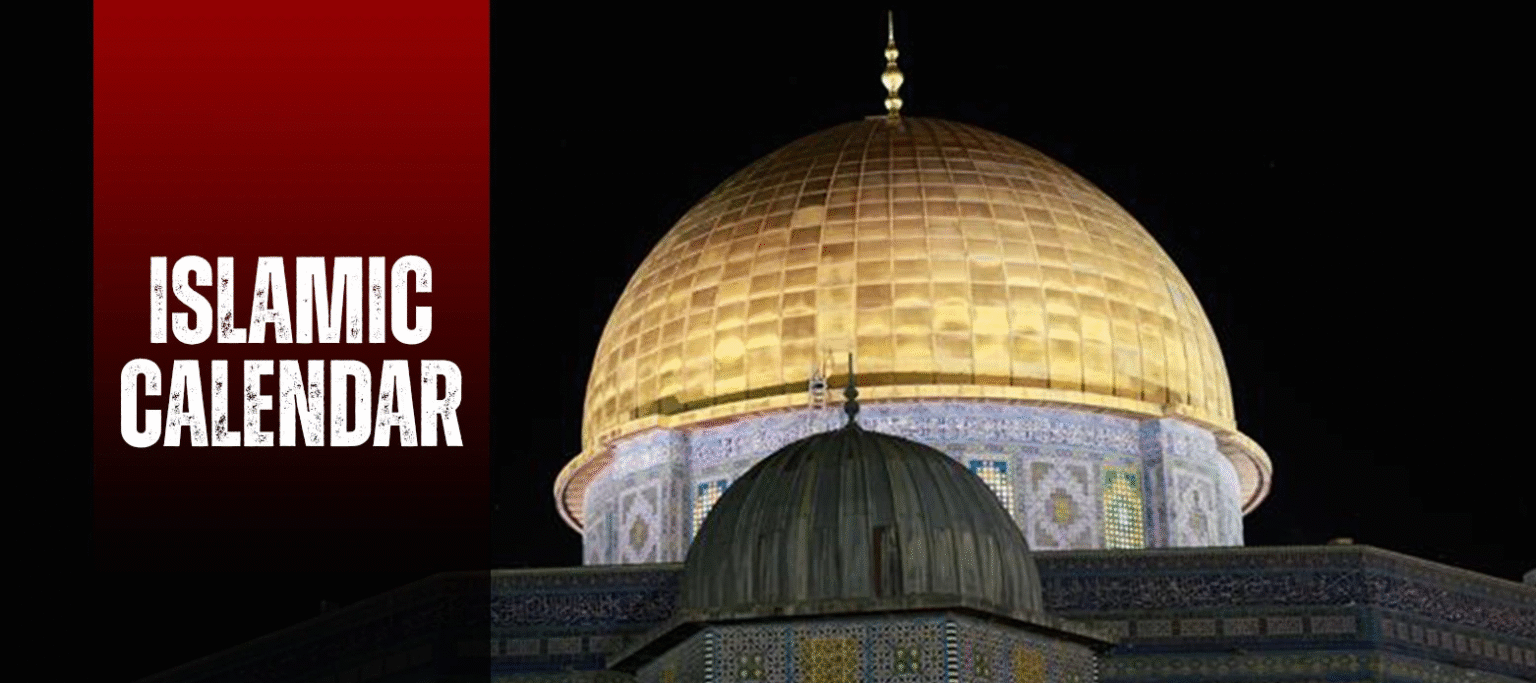An essential part of Muslim identity and heritage is Islamic calendar. It serves as guidance to religious life, not just a way to measure time. The calendar tracks the moon’s movement because it is based on a lunar cycle. The Islamic calendar contains 12 months with 29 or 30 days in contrast to solar calendar that is utilized in most of the parts of world. There are around 354 days in Islamic calendar and 365 days in solar calendar. Compared to solar calendar, Islamic calendar is therefore 11 days shorter. Islamic calendar is not fixed in a single season due to this variation. Dates are only one aspect of Islamic calendar. Important religious events that are very important in Muslim life are highlighted. Muslims are reminded of unity, faith and tolerance by these occasions.
The Start of the Islamic Calendar
Prophet’s (PBUH) migration from Makkah to Madinah in 622 CE marked the beginning of Islamic calendar which is also known as Hijri calendar. Because this event represented the establishment of first Muslim community, it is marked as a starting point. The Hijrah represented the start of new chapter in Muslim history, faith in God and sacrifice. Muslims are reminded by this starting time that life is not just about adding up days and nights. Rather, faith in Allah and connection with Muslim community should serve as its guiding principles. Muslim keep this lesson in mind every year when they follow the calendar.
Key Religious Events in the Islamic Calendar
The Islamic calendar contains many significant religious events. Each events has certain significance in Muslim life. Learning, reflection and worship are guided by these events.
Ramadan
Ramadan is one of the most important month in Islamic calendar. During this month, Muslims keep fast from dawn to sunrise. Fasting promotes patience, self-control and kindness and care for the needy. The nights of Ramadan are also dedicated to prayer and Quran reading. Laylat ul-Qadr also known as the night of power, is one of the special night of Ramadan. Muslims believe that Allah had first revealed the Quran to Prophet (PBUH) at that night. Worship at that night is seen as superior to worship for thousand months. Eid al-Fitr, a happy and joyful festival of charity, harmony and thankfulness marks the end of Ramadan.
Hajj and Eid al-Adha
The month of Dhul Hijjah is another significant chapter in Islamic calendar. Muslims travel to Makkah for Hajj in this month. One of the five pillars of Islam is Hajj. This event promotes equality, brotherhood and love for Allah. In order to show their equality before Allah, millions of Muslims from all over the world come together at one place, while wear white simple dress. The rites serve as a reminder of Prophet Ibrahim (A.S) and his family’s faith. At the completion of Hajj, Muslims celebrate Eid al-Adha also known as festival of sacrifice. Muslims recall Ibrahim’s willingness to offer his son as a sacrifice for Allah. Families sacrifice an animal and distribute the meat among the poor people. This action promotes kindness, compassion and obedience to Allah.
Islamic New Year (1st Muharram)
The Hijri year begins with the Islamic New year. Instead of partying, it is celebrated with prayer and reflection. Muslims recall the hardships of the early Muslims community as well as Hijrah. it gives a chance to reflect on faith, renewal and sacrifice.
Ashura (10th Muharram)
The days of Ashura holds great significance in Muslim life. Prophet Musa and his followers were rescued from Pharaoh on this day according to Sunni Muslims. On this day, Prophet (PBUH) advised people to keep fast. For Shia Muslims, Ashura is a day of sorrow. Hazrat Imam Hussain (R.A), Prophet’s (PBUH) grandson was martyred at Karbala on this day. The importance of upholding the truth and fighting against unfairness are symbolized by this event.
Milad al-Nabi
Milad al-Nabi marks as the birthday of Prophet (PBUH) by many Muslims. Muslims recall his teachings, life and his examples. It is a day to pray and learn about about his character. This day holds value as it provide a chance to renew love for the Prophet (PBUH) and try to live according to his teachings.
Lailat al-Miraj
Lailat al-Miraj is another significant event in Islamic calendar. Prophet (PBUH) travelled from Makkah to Jerusalem and then to the heavens on this night. The gift of prayers, which become daily duty for Muslims, really makes it remarkable occasion. This event demonstrates strong bonds between Muslims and their devotion to Allah.
Lailat al-Bara’ah (Night of Forgiveness)
Lailat al-Bara’ah is the name given to the 15th night of Shahban in some Muslim traditions. It is considered a night of mercy and forgiveness. Muslims pray all night for blessings and pardon. This shows the importance of repentance and Ramadan preparation.
How the Islamic Calendar shapes Muslim Life
The Islamic calendar is more than a set of days and months. The daily routine of Muslims is shaped by it. Each significant occasion gives lessons of faith, compassion, responsibility and charity.
- Ramadan promotes tolerance and care for the needy.
- Brotherhood and obedience to Allah are taught by the Hajj and Eid al-Adha.
- Ashura serve as a reminder of justice and bravery to Muslims.
- The Islamic new year emphasizes on renewal and sacrifice.
Muslims from all over the world come together because of these events. Their shared faith and traditions help to unity the community. The calendars also assures that Muslims stay in touch with their past and the examples of Prophets.
